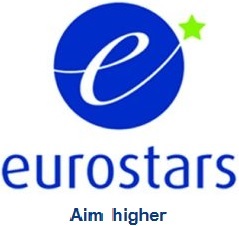 newsitems
newsitems  EU Commissioner Georgieva to EF : Support to High Tech. tools for Humanitarian + Crisis Management
EU Commissioner Georgieva to EF : Support to High Tech. tools for Humanitarian + Crisis Management
EU Commissioner Georgieva to EF : Support to High Tech. tools for Humanitarian + Crisis Management
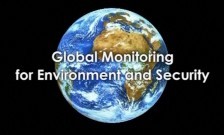
Some High-Tech. Research and Innovation Tools are needed also for Humanitarian and Crisis Management EU actions to protect EU Citizens and vital Infrastructures, and that's why we must support them, observed New EU Commissioner for International Cooperation, Humanitarian Aid & Crisis Response. Professor Kristalina Georgieva, an experienced former World Bank vice-President specialist on sustainable Economy (including Environmental and Social aspects) from Bulgaria, speaking exclusively to "EuroFora" at EU Parliament in Strasbourg, before a series of exceptionaly important events, including key Scientific gatherings on September 2010, and EU's planned Security and Research/Innovation Summits on October.
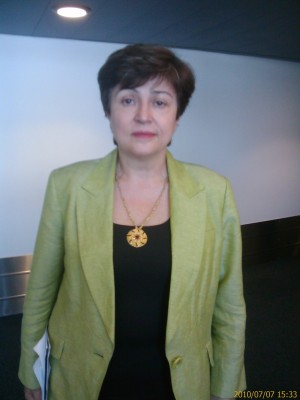
- "Yes", High Tech is sometimes very useful also for Humanitarian Missions and Crisis' Management, she agreed in reply to an "EuroFora" question on a scheduled "EU's October Heads of State/Government Summit on Scientific Research and Technologic Innovation.
- "We (EU) are using f.ex. Satellites for Mapping Cards, etc", she pointed out as an example :
- Among various other occasions, in particular, "we (EU) are working very closely with the Agencies that are doing Satellite Mapping". "And we have to use Satellite Mapping even Today, to project in a case of a Disaster", she explained.
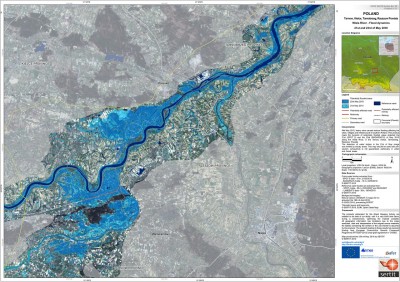
- "For example Floods", in order to see "how Floods may evolve", (as recently in Germany and other Nothern-Central EU Countries), etc, she observed, at the eve of her visit to flood-stricken Romania.
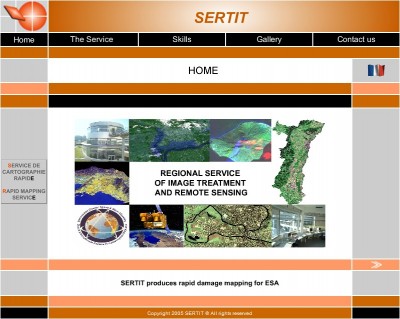
A key EU example is World-famous Strasbourg-based SERTIT "Rapid Mapping Service", able to produce in only 6 Hours a series of eye-catching Synthesis of Space Satellite Images, Cartography and Analysis for consequences of Natural or Man-made Disasters or Conflicts, such as Earthquakes, from Haiti (2010) to Bam (Iran, 2003) or Turkey (1999), "Katrina" Hurricane in the USA (2005), Floods (f.ex. in France, Germany, etc), Forest Fires (f.ex. in Greece 2007, Spain, etc), Population movements/Refugees-Displaced People (f.ex. Darfur, ) or Iceland's Volcanic ashes (2010), etc, for ESA and other end users.
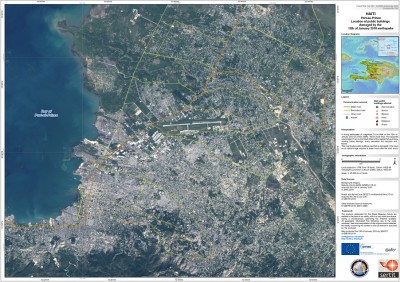
- Therefore, "we (EU) are very much supporting activities in these areas", which aim "to bring (EU) Member States together", Dr. Kristalina Georgieva topically anounced in reply to "EuroFora"s question on the forthcoming EU Science/Technology October 2010 Summit.
The move came well ahead of final proposals which are expected on September, as the competent EU Commissioner for Research, Innovation and Science, Máire Geoghegan-Quinn, recently anounced during a Conference organized by "Atomium Culture" Networking Science-Industry-Media platform at EU Parliament in Strasbourg, (See earlier "EuroFora"s publication with Quinn's statements to "EuroFora", experienced former President of France and Chairman of EU Convention, Valery Giscard d'Estaing's obervations, etc).
-------------------
It also goes in a similar direction as the policy strongly supported by EU Commission's vice-President, in charge of Industry, Enterprise and Space, Andrei Tajani from Italy, to boost in particular EU's Satellite Navigation System GALILEO and Global Monitoring for Environment and Security (GMES) Programs, (See Taiani's replies to "EuroFora"s questions published since January 2010).
Meanwhile, the European Space Agency (ESA) also prepares for its own October 2010 meeting in Brussels to decide on plans to boost the obviously crucial importance inter-disciplinary crossroads' sector of Space-related Research and High Tech, where Europe has yet to strengthen its Political Will to catch up with USA, Russia, and other main World Space Actors.
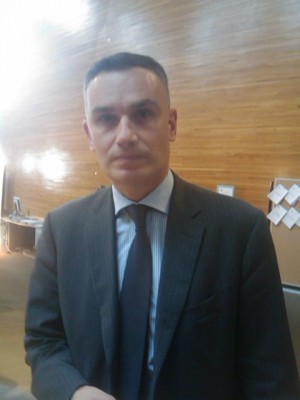
Several Space a.o. High Tech tools, including for Civil Protection, are strongly supported by a recently adopted EU Parliament's Resolution asking to boost "EU's Strategic Autonomy on Security-Defence" policy, drafted by the Chairman of its Committee on Security and Defence, French MEP Arnould Danjean, from the Governing UMP Party, who has already stressed to "EuroFora" EU's will to develop "Dual, Civil - Military operations", which naturally include prevention or early warning and responses to Crisis including various Catastrophes. (See the full Chairman Danjean's statements to "EuroFora" immediately after the adoption of his landmark Report by EU Parliament's Plenary in Strasbourg, already sent to Subscribers/Donors).
Moreover, from the World Trade Center Skyscraper's strange collapse controversy in the September 11, 2001 Deadly Terrorist Attacks which killed some 3.000 mainly Simple Workers at New York (USA), to open questions on Induced Seismicity and the 1999 exceptionally but astonishingly "selective" Deadly Earthquake at Izmit which killed 15.000 mainly Poor People in unsafe buildings in Turkey, after the Tchernobyl Nuclear Disaster earlier in Ukraine, up to 2004's exceptional Giant Tsunami which massively killed unwarned People in South Asia, to various Avian 2005, Swine 2009, and other strange but dangerous "Virus" epidemics, added to massive waves of Refugees and Displaced Persons provoked by recent Conflicts, after Cyprus (1974+) and the Kurdish conflict in Turkey (1980-2000+), in ex-Yugoslavia (1990-2000), Northern Caucasus (Georgia 2008, etc), as well as the Deadly 2003 Heatwave in France, followed by the 2005 "Katrina" Hurricane tragedy in the USA (etc)., the various examples of the need to protect Citizens and Societies from Natural or Man-made Major Hazards became recently more and more obvious.

An experienced key personality in this area, actively involved for Decades in networking Top Scientists and Political Decision-makers at the EU, CoE and UNO levels, former Director of CoE's EUR-OPA Agreement on Major Hazards, Executive Board Member and past-President of the European Materials Research Society (EMRS - Headquartered in Strasbourg, where it has just organized its 2010 Annual Mega-Conference with some 50 parallel Workshops and 2.500 Experts from allover Europe and the World), Secretary General for European/International affairs at the EU Materials Forum (EFM) and of the European Federation of Scientific Networks, as well as Steering Committee Member in the World Agency of Planetary Monitoring and Earthquake Risk Reduction (WAPMERR, Headquartered in Geneva, Dhubai and Moscow), the hyper-active Jean-Pierre Massue, (Scientist in Physics), speaking earlier in Strasbourg to "EuroFora", was particulalry interested in EUCommissioner Kristalina Georgieva's views on High-Tech's input to face Crisis and Humanitarian urgencies :
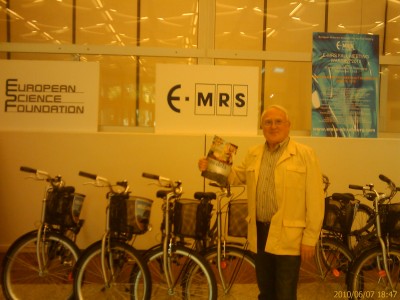
Massue pointed out, as a Topical, concrete example, the "Homeland Security and New Materials" Symposium that he organises with EMRS, EU Commission, a.o. on September in Poland, as part of the European Security Research and Innovation Agenda (ESRIA). in view of a schedulled EU Security Summit later on October, at the eve of EU Heads of State/Government October 2010 Summit on Scientific Research and Technological Innovation, (See supra) :
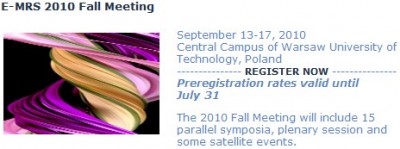
- F.ex. Earthquake disasters' prevention includes both Monitoring for early warning, as well as Innovative Materials and structures for solid, resilient Buildings used for Habitation or Infrastructures, Massue reminded "EuroFora". Japan's example, with High-Tech Buildings able to resist Earthquakes, opposed to Turkey's scandalous unsafe Homes for Poor People as the astonishingly "selective" Deadly 1999 Earthquake showed, are crystal-clear.
- On "Buildings' Risk Resilience", "the World Trade Center in New York (September 11, 2001)" strange, total "Collapse", which reportedly killed much more People than the Direct Terrorist strike itself, initially limited only into a Few upper Floors, "illustrates perfectly that Novel Materials are Necessary to have better Buildings able to Resist to Terrorist Attacks or even Earthquakes", by "reducing the vulnerability of materials used for construction", observed Massue.
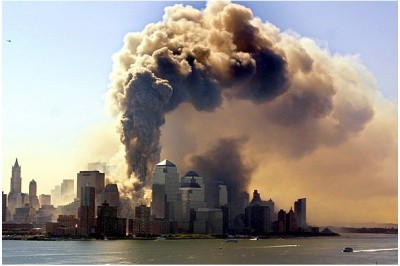
- But, "Security Research should (also) consider Environmental factors, such as Climate Change, which will affect European Security (by) increasing the occurence of Natural Disasters : Droughts, Forest Fires, Floods, as well as leading to higher Migratory fluxes and new Pandemics", Massue added earlier on this same occasion.
- BioTerrorism and/or BioWeapons' new risks might abuse of NanoTechnologies f.ex. to "NanoSize Anthrax Spores in order to significantly increase their Lethality". While "Chemical Agents could be NanoSized, or absorbed on the Surface of NanoMaterials, to effectuate the same, if not more Lethal results", he warned.
- Moreover, "on Crisis Management", "the Collection and Transfert of Informations needed in order to make adequate Decisions is essential, through channels Independent of the Local ("Crisis") situations". This implies, f.ex. "Sensors able to resist to Unusual External Conditions (Heat, mechanical Shock, Radioactivity, etc), as well as "Secured Transmission of the collected Information to an Ad Hoc Network, through analog and digital Electronics", using f.ex. "Semi-Conductors .. Hardened to resist to Radiations", and/or "differend kinds of Energy sources, such as PhotoVoltaics or PiezoElectrics", etc. Since "recent AirCrashes have shown that On Board or .. Local Storage is No longer in agreement with progress in ICT and Telecommunications, the transmission should be managed through Satellites". Thus, EU Satellite Navigation System project "GALILEO will contribute a serious progress, since the exact Position of the Emmission of the Information can be identified precisely", a Draft Paper given by Massue to "EuroFora" observes.
- "Advanced Space Technologies will provide great Opportunities, beyond the current GMES initiative", according to Massue, who finds "important to forster R and D of new platforms, using Space Technologies combining Navigation, TeleCommunication and Earth Observation".
Therefore, the September 2010 Symposium will focus on the "classic Security Cycle : Preventing, Protecting, Preparing, Responding and Recovering", aiming to enhance the "People's Security , Civil Preparedness and Crisis Management". "Securing Critical Assets, such as Energy, Transport and other crucial Infrastructures", implies to examine Security Economics and ...the necessity to ...cope with Limited Access to critical natural Resources, as well as securing... key Manufacturing capabilities .. in Europe" " Airport Security - Materials for secured buildings : Sismicity and Floods", are among the "Hot Topics", EMRS anounced.
---------------------
All this fits well the fact that, for almost all new 2010-2014 EU Commissioners, working together in Teams composed of 2, 3, 4 or more of them, has become a new habit in the way that the Barroso II Commission's architecture has been designed from the start... This practically means, as far as EU Commissioner for International Cooperation, Humanitarian Aid & Crisis Response, Dr. Kristalina Georgieva is concerned, that she would cooperate f.ex. with EU High Representative for External Actions, Baroness Catherine Ashton, from the U.K., a.o. on isues such as Aid to Refugees, International Crisis, etc., and/or with her collegue EU Commissioner for Research, Innovation and Science, Máire Geoghegan-Quinn from Ireland, on matters such as the Satellite or other High-Tech needs for Cooperation, Aid or Crisis.
Kristalina Georgeva concluded by inviting "EuroFora" as "very Welcome" to follow up developments in this, as well as in other relevant fields of EU action in her competence.
(See also other Statements of new EU Commissioner Kristalina Georgieva to "EuroFora", on differend topical issues, already send to Subscribers/Donors).
***
Main Menu
Home Press Deontology/Ethics 2009 Innovation Year EU endorses EuroFora's idea Multi-Lingual FORUM Subscribers/Donors FAQs Advanced search EuroFora supports Seabird newsitems In Brief European Headquarters' MAPs CoE Journalists Protection PlatformBRIEF NEWS
- 00:00 - 02.06.2021
- 00:00 - 18.10.2020
- 00:00 - 19.06.2020
- 00:00 - 18.05.2020
- 00:00 - 20.04.2020
- 00:00 - 02.02.2020
- 00:00 - 09.12.2019
- 00:00 - 27.11.2019
- 00:00 - 16.11.2019
Popular
- Yes, we could have prevented Ferguson riots says World Democracy Forum's Young American NGO to ERFRA
- Spanish People Elect CenterRIGHT Majority with 1st Party and Total of 178 MPs (6 More than the Left)
- Pflimlin's vision
- The European Athletic "Dream Team", after Barcelona 2010 Sport Championship Results
- Source Conseil d'Europe à ERFRA: Debatre Liberté d'Opposants à Loi livrant Mariage+Enfants à Homos ?
- Head of BioEthics InterGroup, MEP Peter Liese : "Embryonic stem cell research reaching its END" !?
- Spain: Jailed Turkish Terror suspect with Explosive,Drones,Chechen accomplices stirs Merah+ Burgas ?
- UN Head Ban Ki Moon at CoE World Democracy Forum : - "Listen to the People !"
Latest News
- Test Photos (f.ex.+ Invit to EU + Korea Peace meeting)
- EUOmbudsmen Conference 2022: Digital Gaps affect People's Trust threaten EF Project on EU Future ?
- French Election : Black Out on Virus, but Obligation for Fake 'Vaccines" Challenged
- Both French Presidential Candidates point at "Humanism" in crucial times...
- France : Zemmour = Outsider may become Game Changer in Presidential + Parliamentary Elections 2022
Statistics
Visitors: 60289397Archive
Login Form
Other Menu
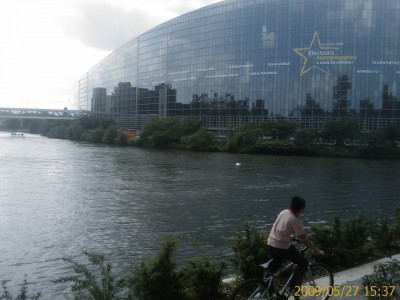
(Opinion).
In Democracy, the forthcoming choices for EU's Top Jobs, as the New EU Parliament's President, new EU Commission's President (+ probably EU Council's President, EU Foreign Minister, etc) should be made according to EU Citizens' Votes in June 7, 2009 European Elections, and main EU Governments' strategic policies.
At the heart of the biggest EU Countries, in France and Germany, EU Citizens clearly voted for a renovated, non-technocratic but Political Europe based on Values, declared explicitly incompatible with Turkey's controversial EU bid.
This main choice was also supported in several other small or medium EU Countries, such as Austria (cf. promise of a Referendum), Spain (cf. EPP program's reservations vis a vis Enlargment), etc., while EPP Parties won also in Poland, Hungary, Cyprus, etc.
In other Countries, whenever Governing coalitions didn't make these choices or eluded them, continuing to let a Turkish lobby push for its entry into the EU, they paid a high price, and risked to damage Europe, by obliging EU Citizens to massively vote for euro-Sceptics whenever they were the only ones to offer a possibility to promise real change and oppose Turkey's demand to enter into the EU :
It's for this obvious reason that British UKIP (IndDem) succeeded now (after many statements against Turkey's EU bid) to become Great Britain's 2nd Party, unexpectedly growing bigger even than the Governing Labour Party, as well as the Liberal party ! Facts prove that it's not an isolated phenomenon : A similar development occured in the Netherlands, where Geert Wilders "Party for Freedom" (PVV) became also the 2nd biggest in the country, (after EPP), boosting the chances of a politician who had withdrawn in 2004 from an older party "because he didn't agree with their position on Turkey". And in several other EU Member Countries, even previously small parties which now focused on a struggle against Turkey's controversial demand to enter in the EU, won much more or even doubled the number of their MEPs (fex. Bulgaria, Hungary, Greece, etc).
On the contrary, whenever Socialist and oher parties were explicitly or implicitly for Turkey's controversial EU bid, they obviously lost Citizens' votes and fell down to an unprecedented low.
In consequence, EU Citizens clearly revealed their main political choices, in one way or another : They voted to change for less Bureaucracy, but more Politics and Values in a Europe really open to EU Citizens, but without Turkey's controversial EU bid.
Recent political developments are obviously different from the old political landscape which existed in the Past of 1999-2004, when Socialists based on Turkish 1% vote governed undisputed not only in Germany, but also in the UK, Greece and elsewhere, France followed old policies decided when it had been divided by "cohabitation", before the 3 "NO" to EU Referenda since May 2005, before Merkel, before Sarkozy, etc.... before the surprises of 7 June 2009 new EU Elections.
If the current candidates to the Top EU jobs promise and guarantee to respect People's democratic choices, OK.
Otherwise, Europe must find new candidates, really motivated and able to implement these democratic choices of the People.
The beginning of crucial, final Decisions are scheduled for the 1st EU Parliament's plenary session in Strasbourg, in the middle of July, and they could be completed towards the October session, when Lisbon Treaty's fate will have been fixed.
See relevant Facts also at : http://www.eurofora.net/newsflashes/news/2009electionsandturkey.html
http://www.eurofora.net/newsflashes/news/daulelections.html
http://www.eurofora.net/brief/brief/euroelectionresult.html
***













